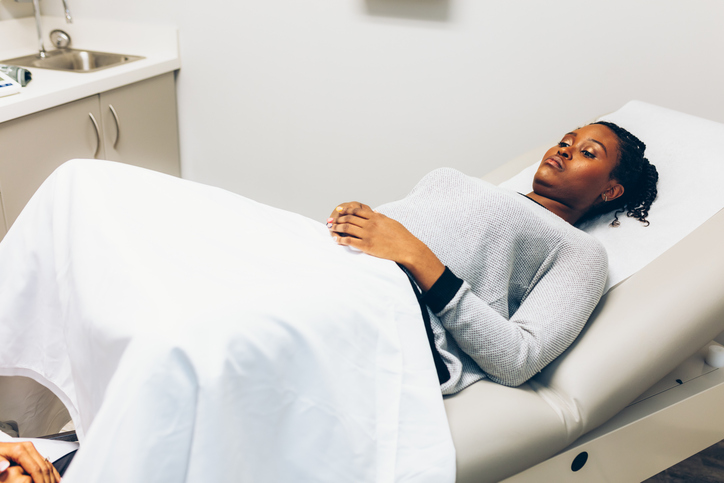
Source: Diversity Photos / Getty
By Linda Blount, President and CEO of Black Women’s Health Imperative
The American Cancer Society (ACS) is needlessly putting the lives of Black women at serious risk through the significant changes to cervical cancer screening protocols it is advocating for. Those drastic shifts include raising the starting age of testing from 21 to 25, and testing women ages 25-65 every five years using primary HPV testing without a simple, simultaneous Pap test. This amounts to going through the same steps to collect only half the information we currently get, as the patient and provider experience is exactly the same whether getting a Pap test, an HPV test, or a Pap and HPV test together.
While those changes are radical and run counter to both proven science and common sense, one statement within those new guidelines stands out as stark evidence of how the medical establishment views the experiences of women of color. In a disturbingly blasé admission, the ACS writes, “There is disparity in the cervical cancer disease burden in the United States, with higher rates of disease among Black and Hispanic women and women of lower socioeconomic status.”
The way I read that statement, the ACS is simply and coldly acknowledging a fact rooted in bias and injustice, accepting it, and then moving on. How could an organization with such influence on how cancer is detected and treated take such a position, knowing the burden is higher on Black women? How could new guidelines for such a serious and deadly disease ever be created that did not address this disparity as a central focus of any changes?
It would have been helpful if the ACS had been more specific about the cervical cancer “burden” that women of color must bear. In this country, Black women die of it at a rate more than twice as high as white women. To ignore that fact in the new guidelines amounts to a literal death sentence for Black women who could easily have been diagnosed and saved if testing was encouraged sooner than later.
Although Black women reportedly get screened at approximately the same rate as white women, research has shown that true screening rates among Black women may be overestimated. This coupled with the fact that the incidence rate of cervical cancer is 30 percent higher among non-Hispanic Black women as compared with non-Hispanic white women, as well as that non-Hispanic Black women are diagnosed younger and with later stages of the disease, means we should pay close attention to ensuring that Black women have access to every screening modality available starting at age 21. The ACS’ decision to make testing even less frequent and less informative could create significantly more harm for Black women.
These changes are being made at a time when Black women’s access to preventative healthcare is more tenuous than ever. The COVID-19 pandemic has exposed and reaffirmed the racial bias and injustices that are inherent in our healthcare system. It is beyond belief that the ACS would choose now to make changes that make an unfair system substantially less fair.
What drove the ACS to alter the guidelines in this way? It is based on data representing the true diversity of women within the U.S.? It is crucial for the healthcare community to understand the strategy and choices that informed their data model, yet they have not released the full input and assumptions for others to analyze. (And it is important context to understand that the American College of Obstetricians and Gynecologists continues to stand by their current guidelines that endorse co-testing, where the Pap and HPV tests are performed together.) Because Black women will be disproportionately impacted by these decisions, we need to understand the science, if any, behind them.
For far too long, the overall health of Black women has been neglected by the medical establishment, which the ACS is certainly a part of. We must push back against these new guidelines not only to protect Black women from unnecessary suffering, but also to use this as a moment to show health care decision-makers that the health and well-being of Black women must be a priority and not an afterthought.
Linda Blount is President and CEO of Black Women’s Health Imperative, the only national non-profit organization dedicated to advancing health equity and social justice for Black women, across lifespan, through policy, advocacy, education, research and leadership development.









